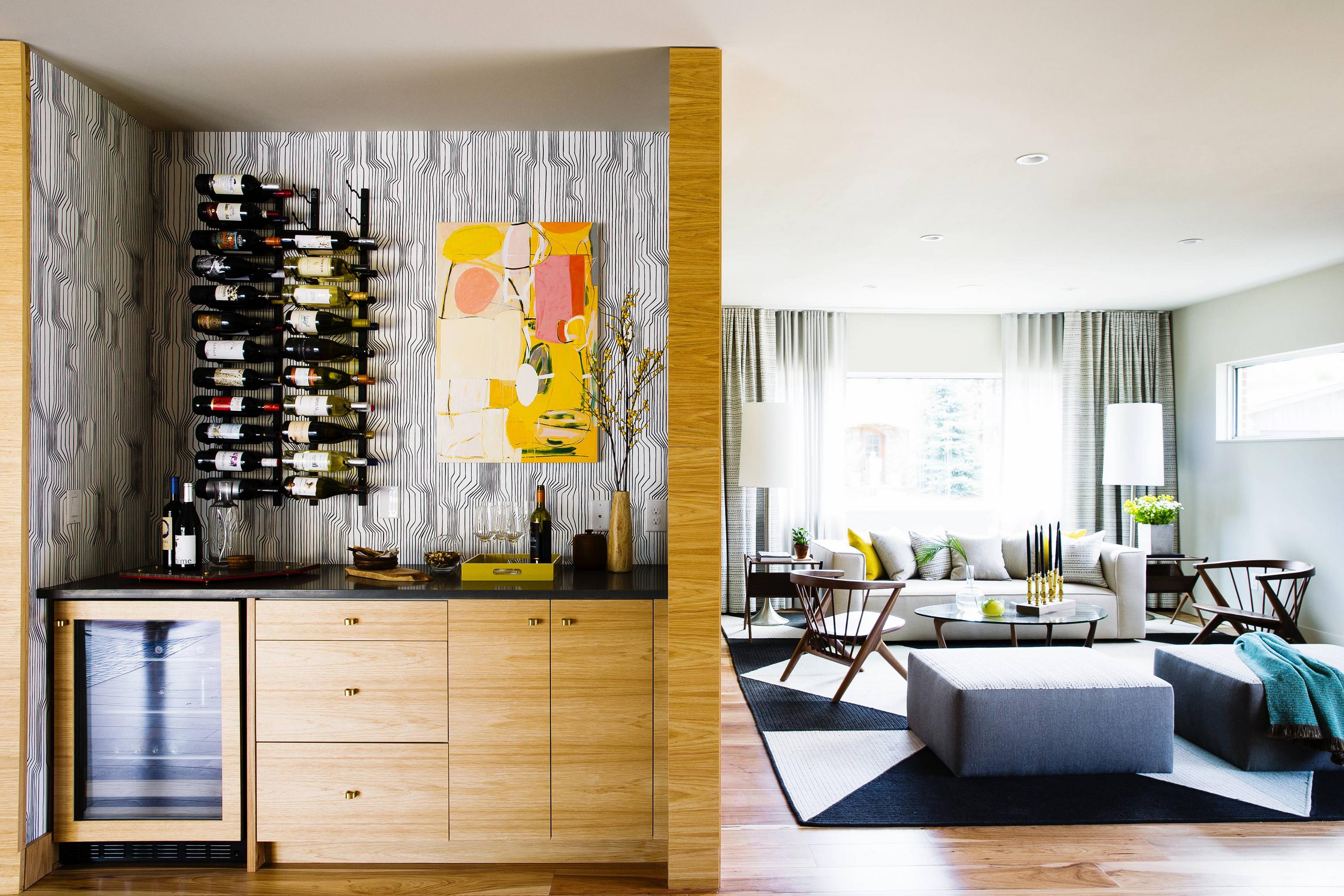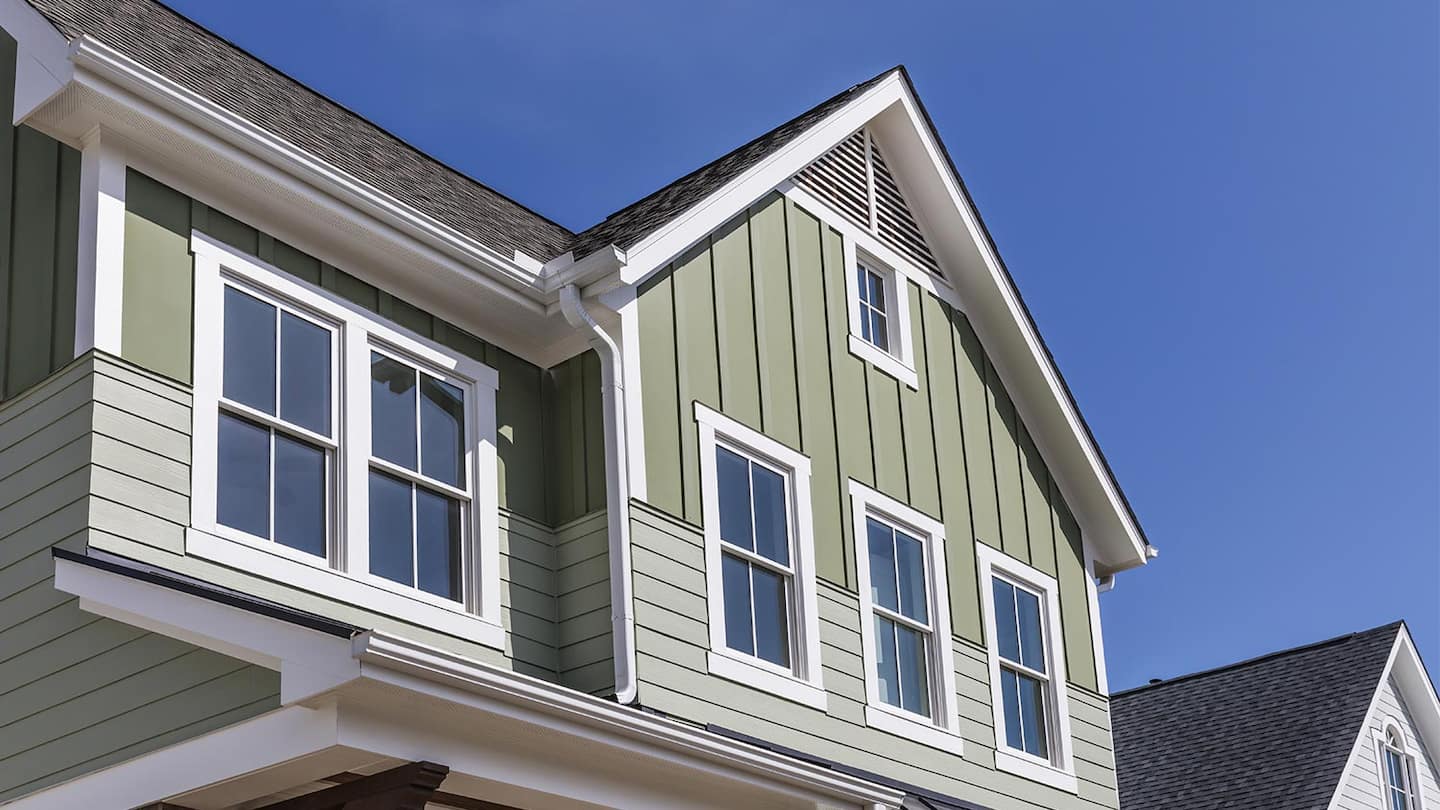
There is a huge variety of exterior design options available to homeowners who choose to go with industrial house style. There are many options for material, including brick, concrete, metal and old lanterns. When choosing the best material for your home, it is important to think about aesthetics.
The industrial style has many benefits. It can be used to create a home or a facade. This style allows owners to combine modern design elements with more traditional architectural details. This is a great option to make the most of an old warehouse, or industrial building. This house is modern and has bold geometric shapes and clean lines. It also uses neutral colors. It is also easy to decorate inside. The most important part is to find a design that matches your personality.
One of the most striking features of an industrial style house is the large glass window and door. This window gives you a glimpse into the inside of the house while also letting you see the landscaping.

The exterior garage is another impressive feature in an industrial-style home. It can accommodate two cars. Wall-mounted industrial-style lamps accent the large door.
Another striking feature of an industrial-style home is the L-shaped yard. The house's outside is surrounded by tall pines. It is also flanked with a concrete walkway that runs in an L shape and features Aloe Vera plants, shrubs, and other vegetation. This design is functional as it allows the homeowner access to their outdoor living space.
A red brick wall acts as a divider in this design. Modern design makes use of this material. The concrete slab that is used for the walls has holes. It blends well in with the rest the house's exterior thanks to its unique look. The wooden fences compliment the wooden exterior walls.
The industrial style has many other features, aside from the stunning glass windows and doors. The interior of this house is spacious and includes several compartmentalized parts. Interiors are equipped with recessed lights and have a large white ceiling. The kitchen is integrated into the dining area and has a leathered-stone backsplash. The kitchen also plays a part in the industrial-style design, as it has a sleek stainless steel appliance.

A modern industrial house has other notable characteristics. The interior of the house features a high ceiling, an open floor plan, and plenty of large glass windows. An open kitchen, large living room, and outdoor kitchen are just a few of the features. This home is perfect for entertaining. The outdoor patio has a pool, barbecue grill, and a fire pit.
The home's industrial design features include an L-shaped driveway, and a grassy yard. This allows the homeowners to have a more private location to live. This house style is very popular with professionals as it provides them an option for private housing. In fact, there are many professionals who choose to live in bachelors pads. These professionals want a place that allows them to be completely alone but also offers privacy. The industrial style is a great escape from the hustle and bustle, while still giving you privacy.
FAQ
How can I avoid being ripped off while renovating my home?
The best way to avoid being ripped off is to know what you are paying for. Read the fine print before signing any contract. You should also not sign any unsigned contracts. Always ask for a copy of the signed contract.
Can I rent a dumpster?
To help you get rid of the debris from your home remodeling project, you can hire a dumpster. Renting a dumpster to dispose of your trash is a great option.
Can you live in a house during renovation?
Yes, I can live in a house while renovating it
Are you able to live in your house while the renovations are ongoing? The duration of the construction works will affect the answer. If the renovation takes less time than two months, then no, you can still live in your home during construction. You cannot live in your house while the renovation process is ongoing if it lasts more than two years.
You should not live in your house while there is a major building project underway. This is because you could be injured or even killed by falling objects on the construction site. You could also suffer from noise pollution and dust caused by the heavy machinery used on the job site.
This is especially true when you live in a multistory house. In this case, the sound and vibration created by the construction workers might cause severe damage to your property and its contents.
You will have to live in temporary accommodation while your home renovations are underway. You won't have all the amenities of your home.
For example, you will not be able to use your washing machine and dryer while they are undergoing repair. Additionally, the smell of paint fumes or other chemicals will be a constant annoyance as well as the banging sound made by workers.
All of these factors can create stress and anxiety for you and your loved ones. You should plan ahead to avoid feeling overwhelmed by this situation.
Research is key when you are considering renovating your home. It will save you money and help you avoid costly mistakes.
It is also advisable to seek professional assistance from a reputable contractor so that you can ensure that everything goes smoothly.
Is there anything I could do to save on my home renovations?
It is possible to save money by doing the work yourself. You could, for example, try to reduce the number of people involved in the renovation. It is also possible to cut down on the cost of materials during renovations.
Is it cheaper to build a new house or remodel an old one?
There are two options available to you if you're considering building a home. Pre-built homes are another option. This home is ready for you to move into. You can also build your own home. If you choose this option, you will need to hire someone to help you design your dream home.
Cost of building a home is determined by how much time you spend planning and designing it. It will take more effort to build a custom-built home because you'll be required to do most construction work. But, you also have more control over which materials you choose and where you place them. It might be easier for you to find a contractor who has experience building custom homes.
A new home is usually more expensive than a remodeled home. That's because you'll pay more for the land and any improvements you make to the property. Additionally, permits and inspections will be required. The average price difference between a new home and one that has been renovated is between $10,000 and $20,000.
Do I require permits to renovate a house?
Yes, you will need permits before starting any home improvement project. In most cases, you will need both a plumbing and building permit. A zoning permit may be required depending on what type of construction you are doing.
Statistics
- Design-builders may ask for a down payment of up to 25% or 33% of the job cost, says the NARI. (kiplinger.com)
- The average fixed rate for a home-equity loan was recently 5.27%, and the average variable rate for a HELOC was 5.49%, according to Bankrate.com. (kiplinger.com)
- ‘The potential added value of a loft conversion, which could create an extra bedroom and ensuite, could be as much as 20 per cent and 15 per cent for a garage conversion.' (realhomes.com)
- On jumbo loans of more than $636,150, you'll be able to borrow up to 80% of the home's completed value. (kiplinger.com)
- It is advisable, however, to have a contingency of 10–20 per cent to allow for the unexpected expenses that can arise when renovating older homes. (realhomes.com)
External Links
How To
5 Things to Know Before You Start Your Home Renovation
-
This is a big undertaking. If you're planning on embarking on major home improvement projects like renovating your kitchen, bathroom, or building a brand new house, it's certain that you'll need to have some assistance. If you aren't confident enough to take on such a daunting task, you may want to reconsider. It can take up your time and cost you money. You won't reap the benefits. Instead, why not hire someone who knows what they're doing to help out? You'll be able to save a lot of time and stress while still having a lovely space to call your own.
-
How much should I budget? This is a common question, but it can make renovations more expensive. The reason is because you'll probably find yourself having to pay back most of the costs at the end of the day. Stick to your budget if you have one! You could wind up spending a lot and not getting any return.
-
Do I prefer to hire professionals or DIY? - Although there's no right answer, we would recommend hiring professionals if you have the means. You can trust them to provide you with advice and guidance on how to proceed with your job. They will install the plumbing correctly, take care of safety, and offer a guarantee after they have finished their work. DIY projects often involve a lot trial and error. You'll learn a lot the hard way. Plus, you'll have to deal with all sorts of problems that arise during the process.
-
Are you able to afford it? Do not underestimate the costs of a renovation. Even if you think you can manage it on your own, you might find that you need to borrow money from friends and family just to cover the bills. And if you're planning to sell your current property soon after completing the renovations, you'll definitely need to factor in the price of selling it into your calculations.
-
What is the best place to start? There's no right or incorrect place when it comes down to where to start. But we suggest you choose something that you enjoy working on. This will help you stay motivated and make it less likely that you procrastinate. Avoid areas that require constant maintenance. You should avoid redecorating your living room if it is always covered in dirt and dust.